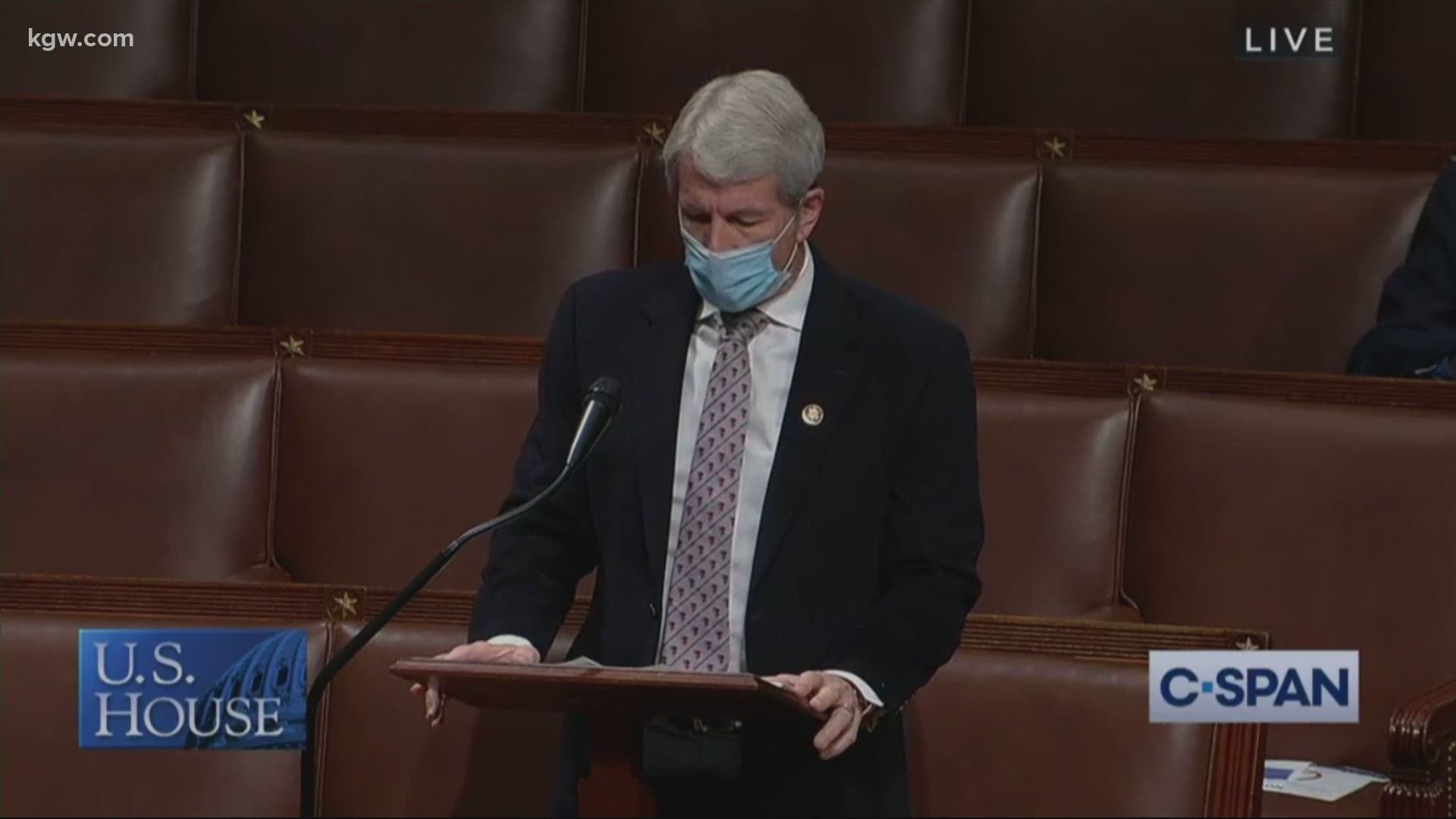PORTLAND, Ore. — While the Democratic-controlled U.S. House of Representatives passed legislation that aims to increase COVID-19 relief payments for certain Americans from $600 to $2,000, there were two Democrats who voted against the bill. One of them was Rep. Kurt Schrader, who represents Oregon’s 5th Congressional District.
In his testimony, Schrader argued the money would be better used elsewhere. He made the same point in a statement Monday evening following the vote.
“This is an ineffective and poorly targeted approach to aiding Americans in distress,” Schrader said. “It is clearly a last-minute political maneuver by President Trump and extremists on both sides of the political spectrum who have been largely absent during months of hard negotiations. These funds would be better used for programs like PPP [Payment Protection Program] and unemployment insurance that directly benefit small businesses and hardworking families who have been negatively impacted by COVID-19. This is a gratuitous political gesture that threatens our children’s future for short-term political gain. I feel for all of those who are suffering today due to financial hardship and I look forward to continuing to work with my colleagues on a bipartisan, bicameral basis to find ways to provide relief during these difficult times.”
Daniel Lipinski, a representative from Illinois, was the other Democrat to not support the legislation.
Some Republicans, including Rep. Greg Walden in Oregon and Rep. Jaime Herrera Beutler in Washington, supported the bill.
Democrats led its passage, 275-134, their majority favoring additional assistance, but dozens of Republicans joined in approval. Congress had settled on smaller $600 payments in a compromise over the big year-end relief bill Trump reluctantly signed into law. Democrats favored higher payments, but Trump's push put his GOP allies in a difficult spot.
The vote deeply divided Republicans who mostly resist more spending. But many House Republicans joined in support, preferring to link with Democrats rather than buck the outgoing president. Senators were set to return to session Tuesday, forced to consider the measure.
The showdown could end up as more symbol than substance. Senate Majority Leader Mitch McConnell, R-Ky., has declined to say publicly how the Senate will handle the bill when Democrats there try to push it forward for a vote on Tuesday.
The package the president signed into law includes two parts — $900 billion in COVID-19 aid and $1.4 trillion to fund government agencies. It will deliver long-sought cash to businesses and individuals and avert a federal government shutdown that otherwise would have started Tuesday, in the midst of the public health crisis.
Aside from the direct $600 checks to most Americans, the COVID-19 portion of the bill revives a weekly pandemic jobless benefit boost — this time $300, through March 14 — as well as the popular Paycheck Protection Program of grants to businesses to keep workers on payrolls. It extends eviction protections, adding a new rental assistance fund.
The COVID-19 package draws and expands on an earlier effort from Washington. It offers billions of dollars for vaccine purchases and distribution, for virus contact tracing, public health departments, schools, universities, farmers, food pantry programs and other institutions and groups facing hardship in the pandemic.
Americans earning up to $75,000 will qualify for the direct $600 payments, which are phased out at higher income levels, and there's an additional $600 payment per dependent child.

